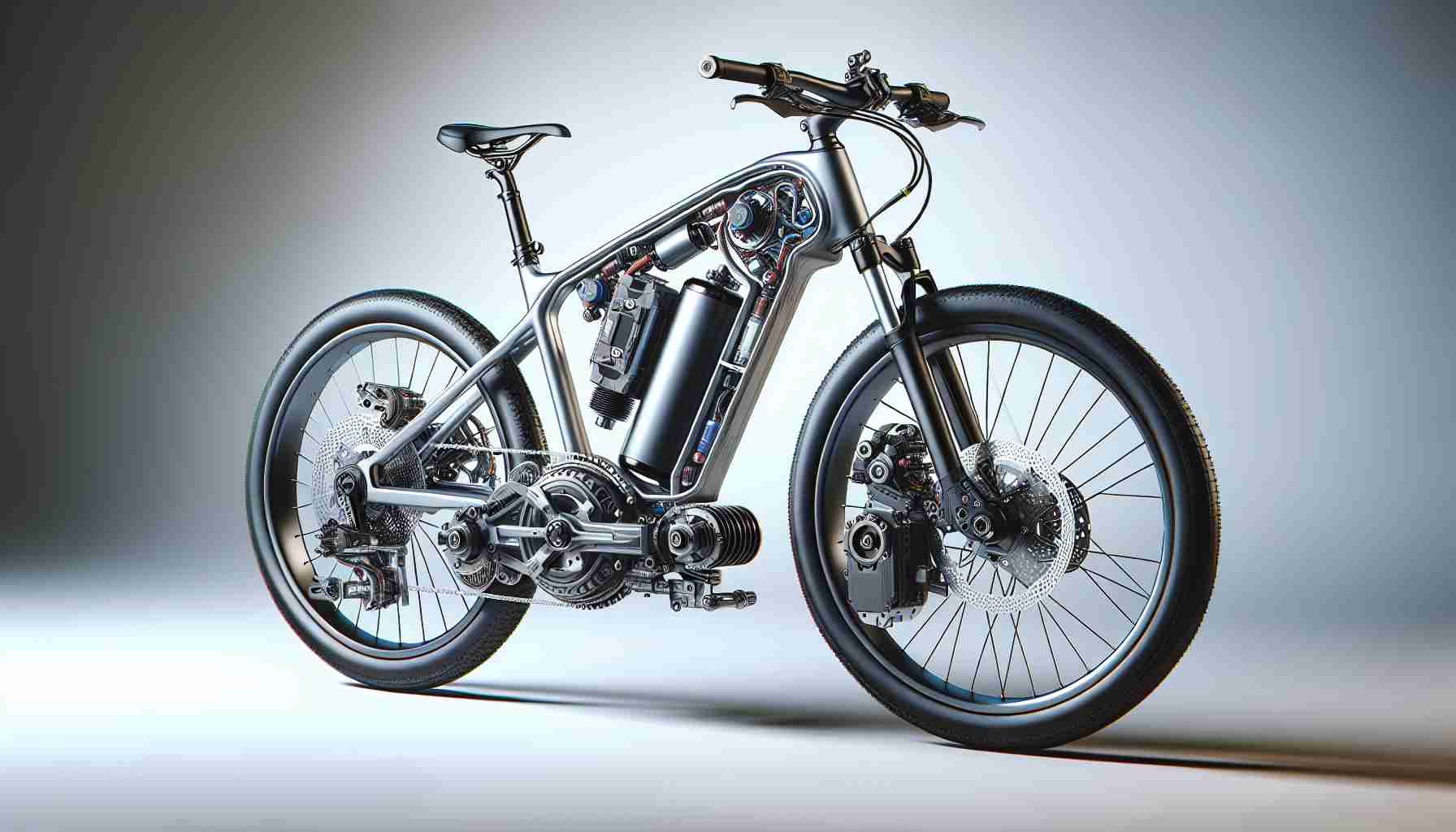Introducing Mahle’s Pioneering E-Bike Innovation
In an exciting development, Mahle has unveiled the world’s lightest e-bike electrification kit, the Mahle XS, during the Roc d’Azur exhibition. Although specifics were initially kept under wraps, the game-changing system is designed for easy adaptation to various traditional bicycles, offering a seamless touch of modernization.
A Compact Powerhouse: The Mahle XS
The heart of the Mahle XS lies in its remarkably compact battery, no larger than a standard water bottle. Originally created as a range extender for larger Mahle battery systems, it now serves as the main power source, boasting a capacity of 171 watt-hours. While modest in size, this battery is perfect for short urban commutes and providing a bit of extra push during uphill rides.
Light as a Feather, Fast as the Wind
Weighing a mere 2.5 kilograms—less than its closest competitors—the Mahle XS includes the Mahle X20 motor, which generates 55 Nm of torque and fits within the rear wheel, optimizing speed without compromising balance. Engineered for road and sports bikes, the system is ideal for enthusiasts who frequently surpass 25 km/h and prefer not to be weighed down.
Customizable E-Bike Potential
Intriguingly, the Mahle XS promises compatibility with a wide variety of bicycles. Skilled cyclists can retrofit their bikes by swapping the rear wheel for a motorized version and connecting it to the compact battery. Although primarily aimed at bike manufacturers, this innovation unlocks possibilities for aerodynamic electric road bikes, offering exceptional performance without sacrificing sleek design.
Revolutionizing Urban Commutes: The Hidden Impact of Mahle’s E-Bike Innovation
The Underestimated Influence of E-Bike Technology
While the debut of Mahle’s lightweight e-bike electrification kit, the Mahle XS, is catching headlines for its remarkable engineering, there are deeper implications to unpack regarding its potential effect on urban mobility, environmental sustainability, and transportation policies. This innovation not only stands to invigorate the cycling sector but also promises to reshape the dynamics of daily commuting and beyond.
Empowering Urban Commutes and Reducing Traffic Congestion
The Mahle XS’s compact design and easy adaptability open a significant opportunity for urban commuters looking to ditch hefty vehicles for nimble, efficient travels. With city populations swelling and road congestion worsening, integrating e-bikes such as those powered by Mahle’s kit could play a critical role in easing traffic flows. This shift may result in less reliance on personal cars, reducing not only road jams but also lowering urban pollution levels, an urgent concern in many metropolitan areas.
Economic Impact on Communities: A Double-Edged Sword
As e-bikes become more accessible, local economies could experience varying effects. On one hand, bicycle shops may benefit from increased sales and service opportunities, leading to job creation and more robust local cycling cultures. Conversely, traditional bike manufacturers could face challenges adapting to this new hybrid market, requiring investments in new technologies and skills. Furthermore, the automotive industry might encounter decreased demand as people move toward more environmentally friendly transportation methods.
Environmental and Health Benefits
Beyond traffic alleviation, the Mahle XS aligns with global sustainability goals by promoting less carbon-intensive transportation. By reducing car dependency, e-bikes help lower greenhouse gas emissions and urban noise pollution, contributing to healthier city environments. Additionally, e-bike riders can enjoy enhanced physical health benefits compared to car commuters, even with pedal assistance, underscoring why such technology is critical for future urban planning.
Challenges and Potential Controversies
Not all stakeholders see this shift positively. Some raise concerns about the increased speed of e-bikes on shared paths, which might lead to safety issues with pedestrians and traditional cyclists. A question arises: Should cities develop separate infrastructure for e-bikes? Moreover, the affordability and accessibility of the Mahle XS and similar systems pose questions about social equity in sustainable transportation.
Are E-Bikes the Future of Short-Distance Travel?
As cities seek sustainable solutions to escalating environmental and infrastructural challenges, e-bikes present a compelling case. Yet, their widespread adoption hinges on parallel advancements in urban cycling infrastructure, regulatory frameworks, and financial incentives. Initiatives promoting the Mahle XS must consider these factors to truly transform urban commuting landscapes.
For readers interested in further exploring the potential impacts of e-bikes and urban transportation changes, comprehensive resources can be found at World Economic Forum and Cycling UK.







